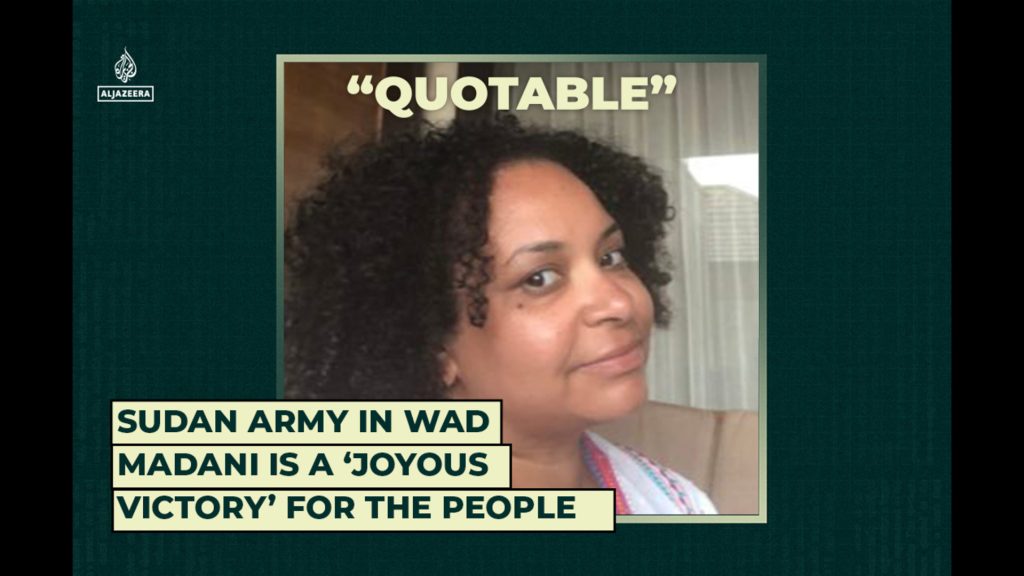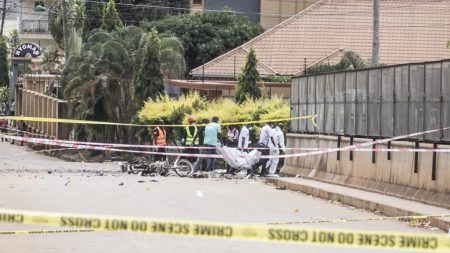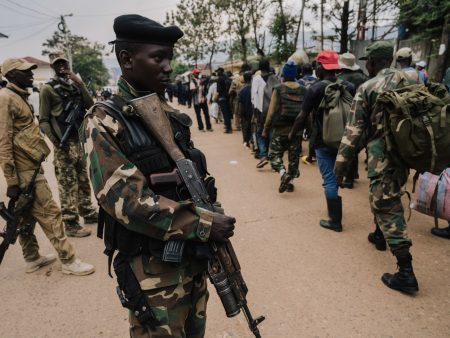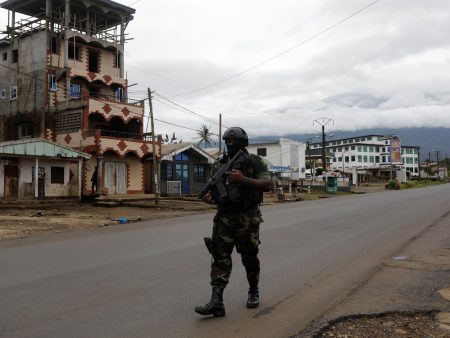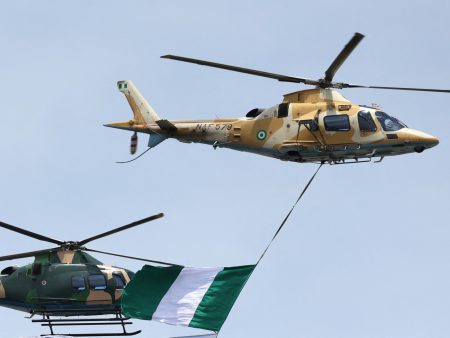The recent triumph of the Sudanese Armed Forces (SAF) over the Rapid Support Forces (RSF) in Wad Madani, a strategically crucial city south of Khartoum, has injected a surge of hope and relief into a nation reeling from months of brutal conflict. While acknowledging the long and arduous road to peace that lies ahead, Sudanese civil society activist Dallia Abdelmoniem characterizes this victory as a significant turning point, a beacon of light amidst the devastating darkness of war. It represents not only a military success but also a profound symbolic victory for the Sudanese people, bolstering their resilience and reaffirming their unwavering commitment to a future free from violence and oppression.
The battle for Wad Madani carried immense weight, both strategically and psychologically. As the capital of Al Jazirah state, an agricultural heartland vital to Sudan’s food security, its control was fiercely contested. The RSF’s presence in the city posed a severe threat, disrupting critical supply lines and exacerbating the humanitarian crisis. Beyond the tangible implications, the RSF occupation had also cast a pall of despair over the population, symbolizing the paramilitary group’s ruthless disregard for civilian lives and its ambition to seize control of the nation. The SAF’s victory, therefore, represents far more than a mere territorial gain; it signifies a pushback against the RSF’s advances, offering a tangible demonstration that their dominance is not inevitable.
For the Sudanese people, this victory represents a resounding validation of their unwavering resistance against the forces of violence and instability. Enduring unimaginable hardships, including relentless bombardments, acute shortages of essential supplies, and the constant threat of violence, they have steadfastly refused to succumb to despair. Their resilience and determination have been truly remarkable, evidenced by the countless acts of courage and solidarity displayed in the face of adversity. The liberation of Wad Madani serves as a much-needed morale boost, reinforcing their belief that peace is attainable and offering a glimmer of hope that the tide of war may finally be turning in their favor.
However, amidst the celebrations and the renewed sense of optimism, it is crucial to recognize that the war is far from over. The conflict in Sudan remains a deeply complex and multifaceted crisis, with its roots entrenched in long-standing political, economic, and social grievances. The battle for Wad Madani represents just one victory in a protracted and bloody conflict. The RSF still maintains a significant presence in other parts of the country, particularly in Khartoum, where the fighting continues to rage, inflicting devastating consequences on the civilian population. Furthermore, the underlying factors that fueled the conflict, including the power struggle between the military and paramilitary forces, the lack of inclusive governance, and the deep-seated ethnic tensions, remain unresolved.
Moving forward, a comprehensive and multi-pronged approach is essential to achieving lasting peace in Sudan. Military victories alone are insufficient to address the root causes of the conflict. A genuine commitment to inclusive political dialogue, involving all relevant stakeholders, is crucial to forging a sustainable path towards peace and stability. This dialogue must address the fundamental issues that underpin the conflict, including power-sharing arrangements, security sector reform, and the equitable distribution of resources. Furthermore, robust international support, both in terms of diplomatic efforts and humanitarian aid, will be vital to bolstering Sudan’s fragile transition and facilitating the arduous process of rebuilding and reconciliation.
The victory in Wad Madani serves as a powerful reminder of the Sudanese people’s resilience and their unwavering commitment to a peaceful future. It offers a glimmer of hope amidst the darkness, demonstrating that even in the face of immense adversity, progress is possible. However, the path to peace remains long and challenging. Sustained efforts, involving both national and international actors, are crucial to translating this victory into lasting peace and stability for the Sudanese people. The international community must remain actively engaged, providing the necessary political, economic, and humanitarian support to help Sudan emerge from this devastating conflict and build a more just and prosperous future. The celebration of this victory should not overshadow the urgent need for continued action to address the root causes of the conflict and ensure a sustainable peace for all Sudanese people.




